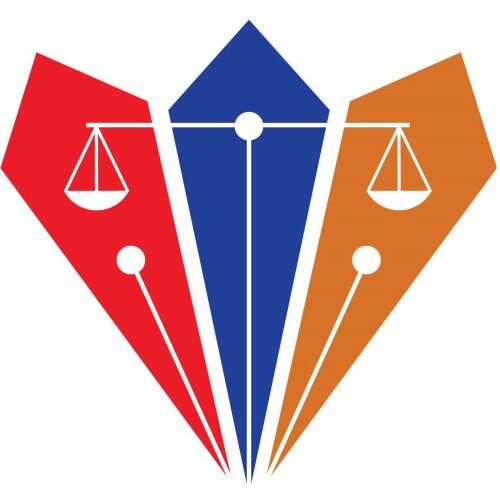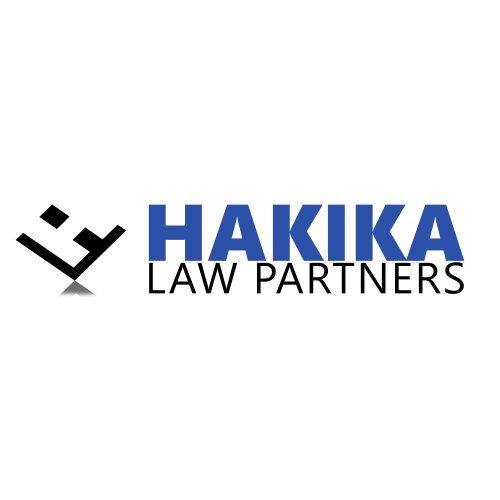Best Housing, Construction & Development Lawyers in Tanzania
Share your needs with us, get contacted by law firms.
Free. Takes 2 min.
Free Guide to Hiring a Real Estate Lawyer
Or refine your search by selecting a city:
List of the best lawyers in Tanzania
About Housing, Construction & Development Law in Tanzania:
Housing, construction, and development are vital sectors in Tanzania's economy, contributing to infrastructure growth and urban development. The legal framework governing these areas in Tanzania aims to regulate and supervise the construction of residential and commercial properties, ensure quality standards, and protect the rights of stakeholders involved in development projects.
Why You May Need a Lawyer:
You may need a lawyer specializing in Housing, Construction & Development law in Tanzania if you are facing disputes with contractors, seeking guidance on zoning regulations, navigating property acquisition processes, or addressing ownership rights issues.
Local Laws Overview:
Tanzania's legal framework for Housing, Construction & Development is shaped by laws such as the Land Act, Physical Planning Act, and Building Control Act. These laws govern land use, property ownership, construction permits, and building standards to ensure sustainable development and urban planning.
Frequently Asked Questions:
1. What permits are required for construction projects in Tanzania?
In Tanzania, construction projects require permits such as building permits, environmental impact assessments, and occupancy certificates. It is essential to comply with these requirements to avoid legal consequences.
2. How can I resolve a dispute with a contractor in Tanzania?
If you have a dispute with a contractor in Tanzania, you can seek legal advice to explore options for negotiation, mediation, or litigation to resolve the issue amicably.
3. What are the land ownership regulations in Tanzania?
Land ownership in Tanzania is governed by the Land Act, which distinguishes between customary, statutory, and allocated land tenure systems. Understanding these regulations is crucial when dealing with property transactions.
4. How can I ensure compliance with building standards in Tanzania?
To ensure compliance with building standards in Tanzania, it is essential to engage qualified professionals, adhere to approved designs, obtain necessary permits, and conduct regular inspections during construction.
5. What are the procedures for property acquisition in Tanzania?
The procedures for property acquisition in Tanzania involve conducting due diligence, negotiating terms of sale, executing sale agreements, and registering the property with relevant authorities to secure ownership rights.
6. How can I protect my rights as a property owner in Tanzania?
To protect your rights as a property owner in Tanzania, you should register your property, maintain legal documents, pay taxes on time, and seek legal advice when faced with disputes or transactions involving your property.
7. What role do government agencies play in regulating Housing, Construction & Development in Tanzania?
Government agencies such as the Ministry of Lands, Housing, and Human Settlements Development, the National Environment Management Council, and municipal councils regulate and oversee Housing, Construction & Development activities in Tanzania to ensure compliance with laws and standards.
8. How can I appeal a decision regarding a construction project in Tanzania?
If you disagree with a decision regarding a construction project in Tanzania, you can appeal to relevant authorities, seek legal advice on the appeals process, and present your case based on evidence and legal provisions.
9. What are the penalties for non-compliance with Housing, Construction & Development regulations in Tanzania?
Non-compliance with Housing, Construction & Development regulations in Tanzania may result in fines, project suspension, demolition orders, or legal actions. It is crucial to adhere to legal requirements to avoid punitive measures.
10. How can I address land use disputes in Tanzania?
To address land use disputes in Tanzania, you can seek legal advice, explore alternative dispute resolution mechanisms, such as mediation or arbitration, and engage in dialogue with the parties involved to reach a mutually acceptable resolution.
Additional Resources:
For additional resources and guidance on Housing, Construction & Development law in Tanzania, you can refer to the Tanzania Building Agency, the National Housing Corporation, and legal firms specializing in real estate and property law.
Next Steps:
If you require legal assistance in Housing, Construction & Development matters in Tanzania, it is advisable to consult with a qualified lawyer who has experience in this field. Be prepared to provide relevant documents, details of the issue, and specific questions to help the lawyer assess your case effectively and provide tailored advice.
Lawzana helps you find the best lawyers and law firms in Tanzania through a curated and pre-screened list of qualified legal professionals. Our platform offers rankings and detailed profiles of attorneys and law firms, allowing you to compare based on practice areas, including Housing, Construction & Development, experience, and client feedback.
Each profile includes a description of the firm's areas of practice, client reviews, team members and partners, year of establishment, spoken languages, office locations, contact information, social media presence, and any published articles or resources. Most firms on our platform speak English and are experienced in both local and international legal matters.
Get a quote from top-rated law firms in Tanzania — quickly, securely, and without unnecessary hassle.
Disclaimer:
The information provided on this page is for general informational purposes only and does not constitute legal advice. While we strive to ensure the accuracy and relevance of the content, legal information may change over time, and interpretations of the law can vary. You should always consult with a qualified legal professional for advice specific to your situation.
We disclaim all liability for actions taken or not taken based on the content of this page. If you believe any information is incorrect or outdated, please contact us, and we will review and update it where appropriate.
Browse housing, construction & development law firms by city in Tanzania
Refine your search by selecting a city.












